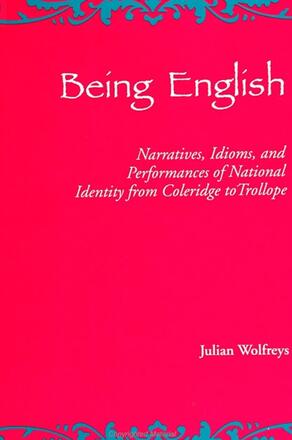
Being English
Narratives, Idioms, and Performances of National Identity from Coleridge to Trollope
Alternative formats available from:
Description
Drawing on recent developments concerning national identity in post-Marxist criticism and Derridean philosophy, Wolfreys looks at the ways in which literature is used to represent the English middle-classes to themselves, using texts by Coleridge, Wordsworth, Arnold, Gaskell, Collins, Eliot, and Trollope.
Julian Wolfreys is Lecturer in Literature in the School of English and History at the University of Luton.
Reviews
"Julian Wolfrey's Being English throws together Derrida and Margaret Thatcher, Marx and Matthew Arnold, Wordsworth and Coleridge and Eliot and Gaskell and Trollope and more Derrida and Wilkie Collins into a brilliant and delicious study of the making of national identity. Allowing the past to read the present, Wolfreys produces a lucid, frightening, and often hilarious account of the development not only of 'Englishness,' but of a host of supporting fictions: 'Victorianism,' 'the gentleman,' 'our countrymen,' and many others. This is an alert and extremely original argument, as engaging as it is vital, and so quick on its feet that it seems less like an academic book than a compelling (and subversive) concerto. " — James R. Kincaid, University of Southern California
"This is a groundbreaking book. I admire its ambitious and successful incorporation of the current political uses of 'Victorian values,' and its sophisticated deployment of the latest critical insights on the subjects of nation and narration—it's very much at the cutting edge of the field; the book has broad appeal, drawing on material from the Romantic and Victorian periods, and on novels, poetry, and non-fiction. " — Martin A. Danahay, Emory University